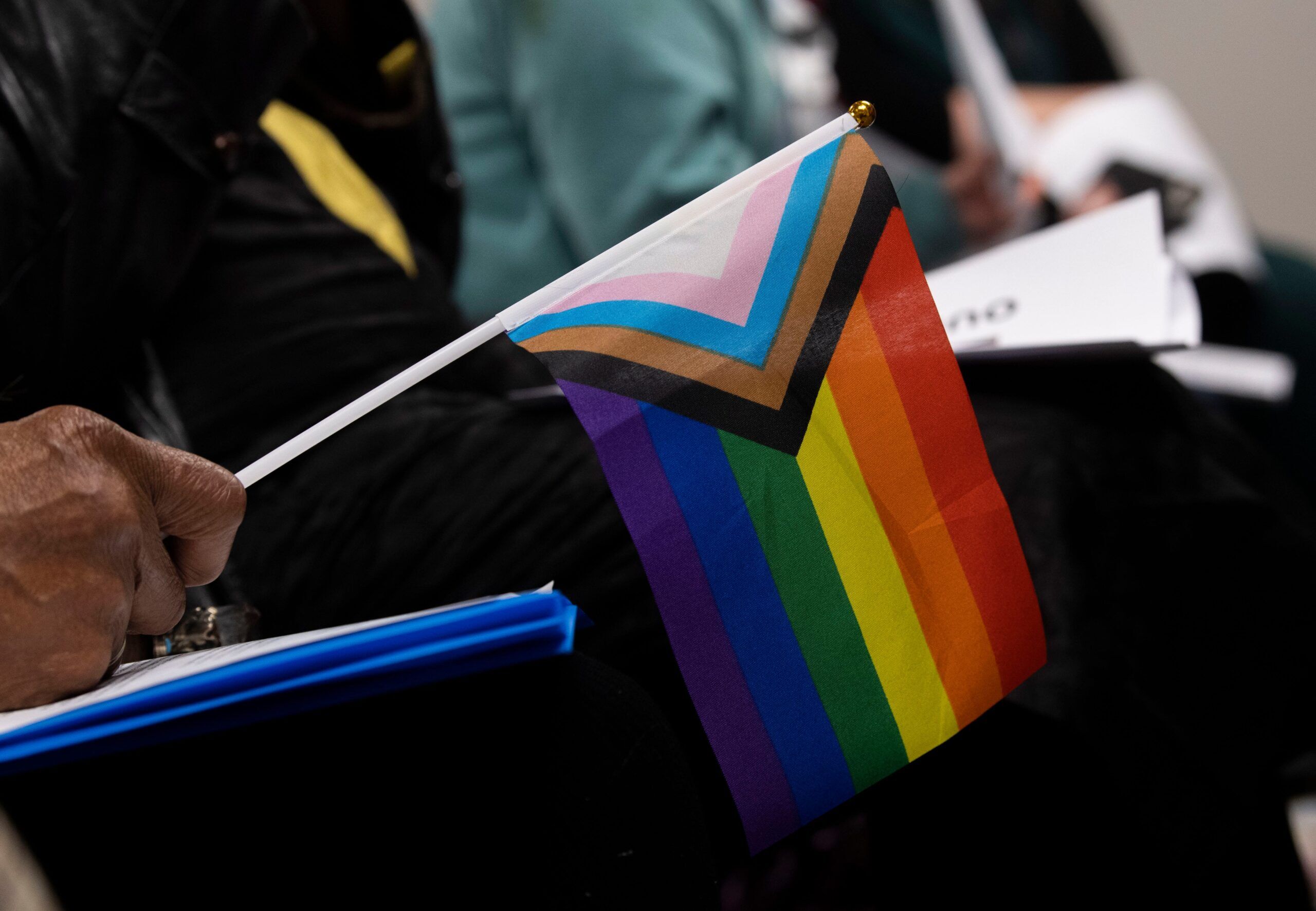Athletes who want to lift a Pride rainbow flag at the Paris 2024 Olympics outside of “protected” moments and locations will be given due consideration, the International Olympic Committee has told Outsports.
The IOC said it is committed to ensuring all athletes “have equal opportunities to express themselves” in line with the recently revised wording to its Olympic Charter and updated guidelines for participants.
Where more clarity is needed, says the IOC, assessments will continue to be made on a “case-by-case” basis.
In recent weeks, there have been several examples of LGBTQ athletes displaying rainbow flags at international events and competitions, such as basketball player Daniel Arcos at the Pan-American Games opening ceremony in October and figure skater Amber Glenn after her win at the U.S. National Championships last weekend.
Get off the sidelines and into the game
Our weekly newsletter is packed with everything from locker room chatter to pressing LGBTQ sports issues.
With at least 186 out LGBTQ athletes having taken part in the last Summer Olympics in Tokyo three years ago — more than triple the number at Rio 2016 — there is a high expectation of increased representation once again in Paris.
The chances of one or more athletes wanting to make a visible statement of pride via the use of the internationally recognized rainbow flag are greater than ever.
The IOC says that the updated guidelines on athlete expression, which were issued earlier this month, provide “increased opportunities” for those competing in the Games to express themselves freely.
These include interactions with the media, through social media, and in the time immediately before competition — such as when being introduced to spectators — under four conditions.
Those conditions state that the expression, such as a gesture, must meet “the Fundamental Principles of Olympism;” not be targeted “against people, countries, organizations and/or their dignity;” not be disruptive; and not be prohibited by the rules of the relevant National Olympic Committee or International Federation.
The guidelines were approved by the IOC’s executive board following recommendations made by the IOC Athletes’ Commission, and amendments made in October to the Olympic Charter that strengthen commitments to human rights.
IOC EB approves one change of nationality and Guidelines on Athlete Expression for Paris 2024
— IOC MEDIA (@iocmedia) January 18, 2024
Full story: https://t.co/Ez2pRC39k3 pic.twitter.com/hZWI2tanX8
More than 3,500 athletes representing 185 nations were consulted on the topic of freedom of expression between June 2020 and April 2021.
As explained in July 2021 by the chair of the IOC AC, two-time Olympic gold medal-winning swimmer Kirsty Coventry, the majority expressed a desire to “preserve” five key moments and locations at the Games — the competitions on the Field of Play, the opening and closing ceremonies, the medal (or victory) ceremonies, and the Olympic Village itself.
That means there is highly unlikely to be a moment similar to the 2022 Commonwealth Games in Birmingham, U.K., when Tom Daley and a group of LGBTQ activists waved Progress Pride flags as part of the opening ceremony.

However, with venues fully open and no Covid-19 restrictions in place at a Games for the first time since PyeongChang 2018 — when multiple rainbow flags were waved by supporters in the crowd — organizers are already anticipating enquiries from athletes.
An IOC spokesperson told Outsports: “The Athlete Expression guidelines are the results of extensive consultation with athletes.
“They provide increased opportunities for athletes’ expression during the Olympic Games, for example in the mixed zones and in the International Broadcasting Centre (IBC) or the Main Media Centre (MMC), including when speaking to the media, during press conferences in the venue or in the MMC, in traditional media, digital or social channels media, as well as on the field of play prior to the start of the competition, under certain conditions (outlined on page 3 of the guidelines).
“They also highlight a few moments and locations the majority of athletes wanted to protect, where they felt that the focus should remain solely on sport.
“If any athlete has a specific request that is not covered by the guidelines, the IOC will evaluate it on a case-by-case basis.”
Since Beijing 2022, two of the Principles of Olympism have had the phrase “internationally recognized human rights… within the remit of the Olympic Movement” inserted into their wording.
Those revisions were confirmed in October alongside a change to the Olympic Charter’s Rule 40, which now includes the following statement: “All competitors, team officials or other team personnel in the Olympic Games shall enjoy freedom of expression in keeping with the Olympic values and the Fundamental Principles of Olympism, and in accordance with the Guidelines determined by the IOC Executive Board.”
Meanwhile, Rule 50.2 of the Charter already states that “no kind of demonstration or political, religious or racial propaganda is permitted in any Olympic sites, venues or other areas.”
The interpretation and implementation of Rule 50 has been the subject of considerable debate over the years.
At the Tokyo Olympics, the IOC launched a probe into US silver medalist Raven Saunders’ ‘X’ gesture on the podium but later suspended the investigation following the sad news of her mother’s death.
The local Paris 2024 organizing committee president Tony Estanguet has already outlined the hosts’ commitment to freedom of expression.
When announcing its partnership with Pride House France in May last year, Estanguet stressed that athletes would have “plenty of opportunities… to use the platform of the Games to demonstrate that there (are) some situations (that are) not acceptable, that we have to evolve”.

























